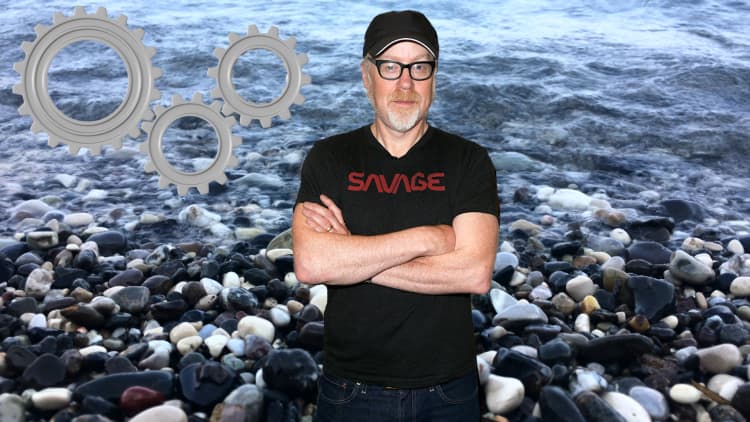You don't always need a college degree to be successful. Look at Adam Savage, who has channeled his creativity into a career as the former co-host of the hit TV show "Mythbusters," a special effects designer, and a public speaker — along with dozens of other jobs.
Savage did all this without a degree. "I have a high school diploma and I have a few classes I took and some other things after I graduated from high school," he tells CNBC Make It. He did enroll at NYU Tisch School of the Arts, but dropped out six months into his first year in the acting program.
But Savage — who has a new show, "Savage Builds" out next month — is quick to point out that he's not against getting a college degree. Instead, he advocates attending with a clear purpose. "I'm a big believer in knowing why you're going to college. I don't think 'because everyone else is going' is a good enough reason," he says.
Cost plays a big factor in his advice. Over half of those graduating college this year say they have student loan debt. Among those, the average amount is $22,919. That's according to a survey of 2,500 recent and upcoming college graduates by education and technology company Cengage.
"The current expense of the college system is crazy to me," Savage says.
So it's important to have a reason for spending on your education. Not sure what you want to pursue? Savage recommends exploring your passions first. "In the house I grew up in, my folks put real value on following one's passionate interest wherever they may lead," Savage writes in his new book "Every Tool's a Hammer: Life Is What You Make It."
It's a model he's carried into his own family. When his twin boys were considering college, he says he encouraged them to take a gap year and spend some time in the working world. This gives you some experience and allows you to see what the world is like, he says.
"When you've been out in private industry and seen the mechanics of your average office, it fills in blanks that college can't possibly quite tell you about," Savage says.
When you've been out in private industry and seen the mechanics of your average office, it fills in blanks that college can't possibly quite tell you about.Adam Savage
And then after that experience, if you do go to school, you're hopefully going for a reason, he says. "You know what you want to get out of it, whether it's music production, or painting, or writing or engineering," Savage says, adding that having a purpose generally leads to success.
"When you know what you want out of it you'll never get anything but an 'A' for the rest of your life, because you're invested in it," he says.
But going to college doesn't need to mean racking up debt. "I'm also a believer in going to get your requirements at community college," Savage says. About 8.7 million students are studying at public two-year colleges, or community colleges, according to the most recent figures from National Center for Education Statistics (NCES). And, on average, tuition at these schools for the 2018 - 2019 school year was $3,660, but many students end up paying significantly less.
"I don't think it makes sense in this day and age to go into huge amounts of debt," he says.
Don't miss: 36% of college grads with student loans say the debt wasn't worth it—here's what experts say
Like this story? Subscribe to CNBC Make It on YouTube!




